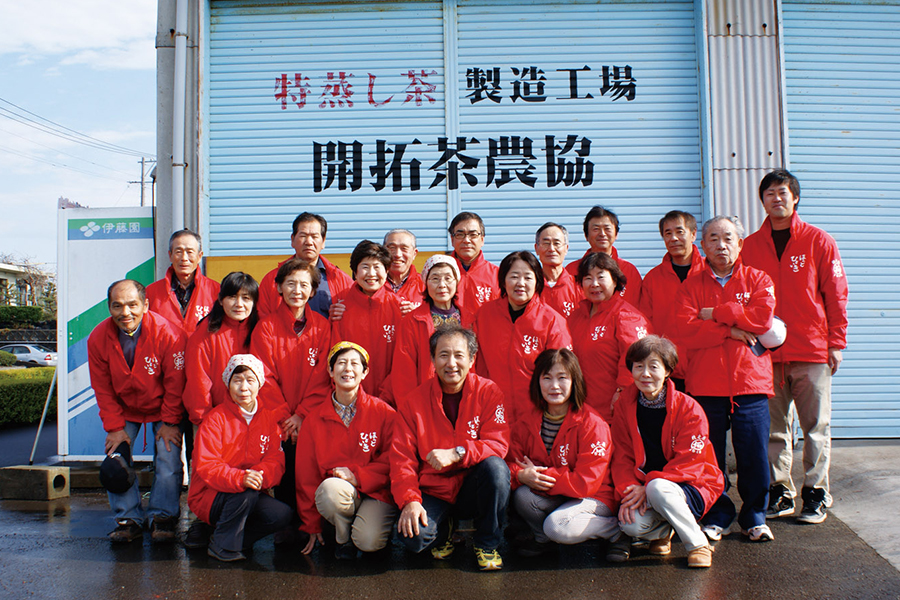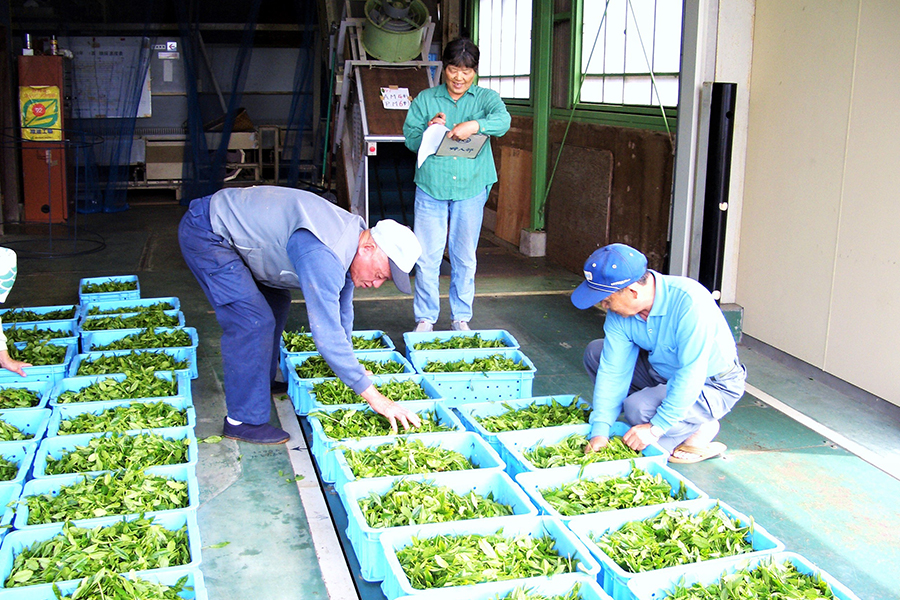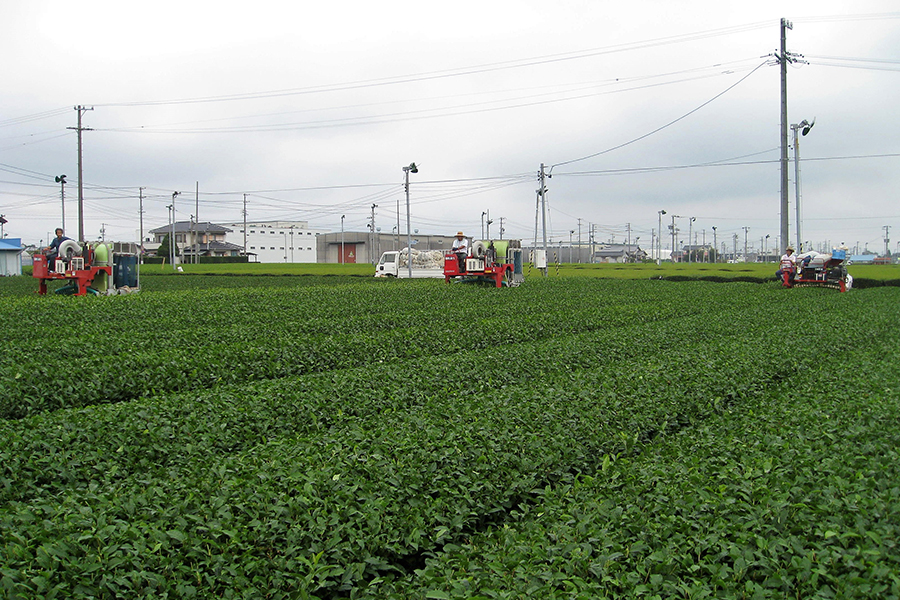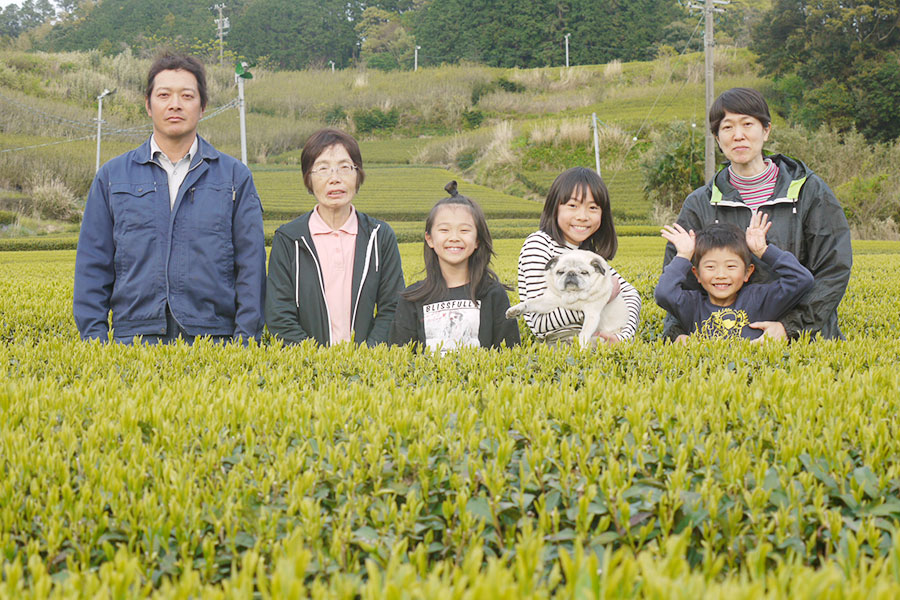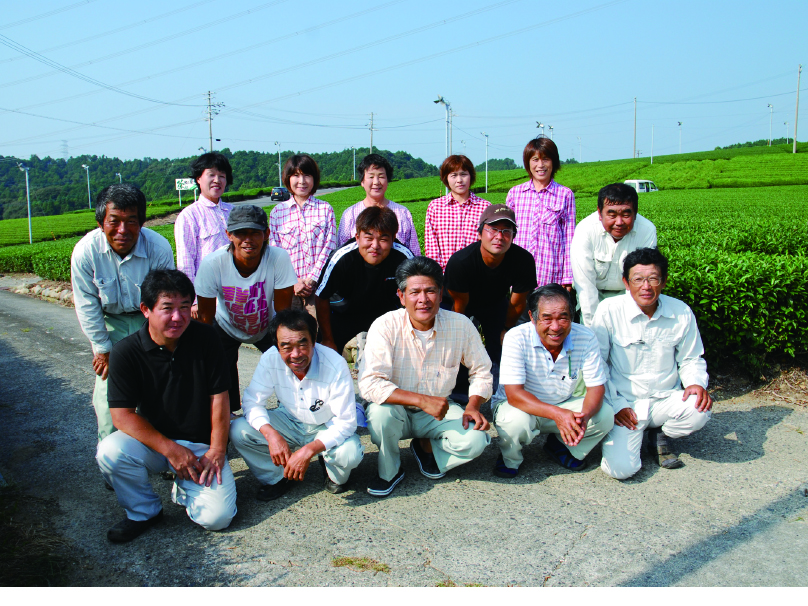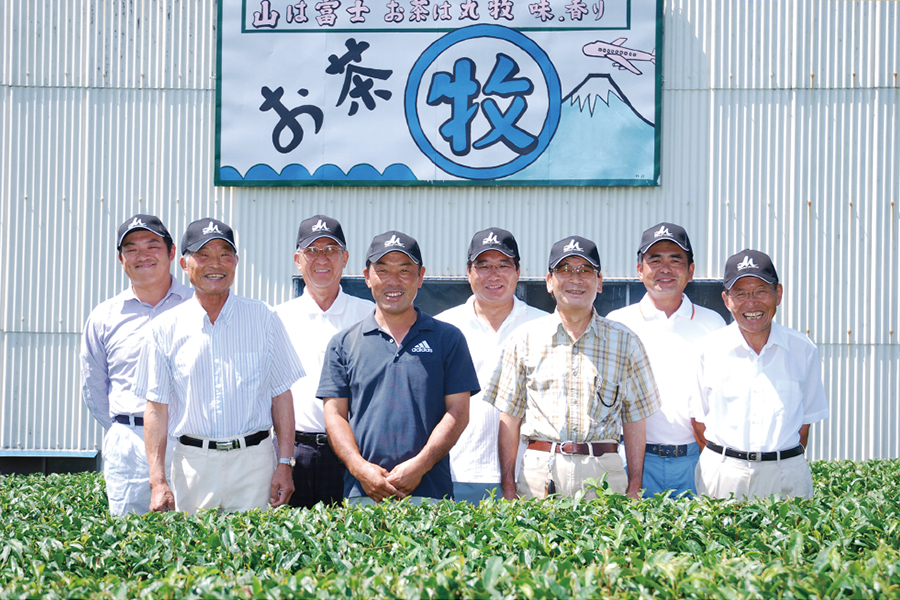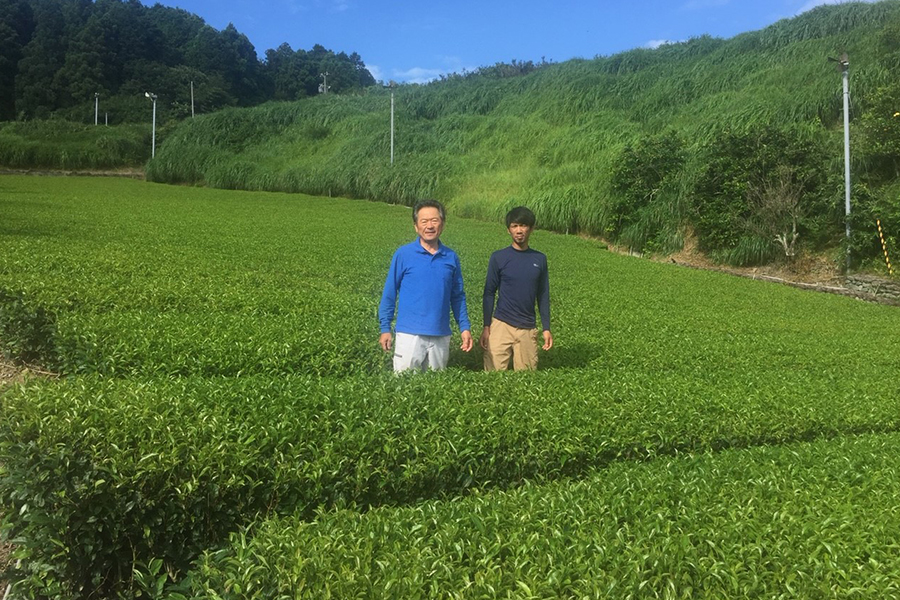Makinohara has a red soil rich in iron and minerals and the highest annual number of hours of sunshine in all of Japan. At Sugita Tea Farm, we make use of these characteristics by cultivating and producing a fukamushi, or "deep steamed" sencha. This fukamushi process is perfectly suited for leaves grown in Makinohara’s terroir (soil and climate).
In addition, we choose tea cultivars best adapted to Makinohara's terroir. We also focus on producing black tea and fresh leaves destined for production of tencha used in making matcha, since these two types of tea are best suited to cultivars grown in Makinohara area.
Finally, we are also practitioners of a "Globally Important Agricultural Heritage Systems" (GIAHS) called Chagusaba, a “Traditional Tea-Grass Integrated System" only found in Shizuoka. This system is an environmentally friendly cultivation method that helps protects the ecosystems of Satoyama, border zones between natural forests and agricultural land. Our family works together to produce safe and reliable tea through organic tea plantation management.
Chamuchamu Land Sugeyamaen
At Chamuchamu Land Sugeyamaen, our tea is produced jointly by fifteen people from a community of six households from the Sugeyama district, which are mainly located on the Makinohara Plateau.
In 2011, at a product fair, we received the Ministry of Agriculture, Forestry and Fisheries Award. We aim not only to produce safe and reliable tea for all our customers, but we also commit to making tea of such excellence as to insure our customers will delight in their every cup.
In Japan, as part of our schools’ Food Education Classes, we also wish to provide tea education to young students in the hope of passing on our tea culture to future generations.
Makinohara Marumaki Tea Farm Cooperative
Our tea production is focused on the degree of steaming of the tea leaf, a method called chofukamushi or "extra deep steaming".
Based on a philosophy of land management that both loves and respects the earth and utilizes the blessings nature has to offer, our integrated production system can serve as a model for the region.
This model focuses on soil preparation and cultivation management that produces fresh leaves which can withstand this extra deep steaming. This is done in an effort to deliver a tea with a full-bodied flavour and fresh aroma unique to chofukamushi.
Yamaya Yamazaki Tea Farm
We have a 15 hectare tea plantation in the vast tea fields of Makinohara, and together with our contracted farmers, we work hard every day to adhere to our motto "make tea that is safe, delicious and brings peace of mind".
In addition, our factory has acquired the "Traditional Tea-Grass Integrated System" (Chagusaba), which is recognized by, and certified under, GIAHS (Globally Important Agricultural Heritage Systems). Every year, as part of Chagusaba system's practices, we cut wild grass that is used as organic matter to cover the soil in our tea fields. We believe that this works to naturally replenish minerals and activate microorganisms in the soil, which help bring out the flavour in our tea.
We hope you will enjoy the full-bodied flavour and deep green colour of Yamaya's signature tea.

